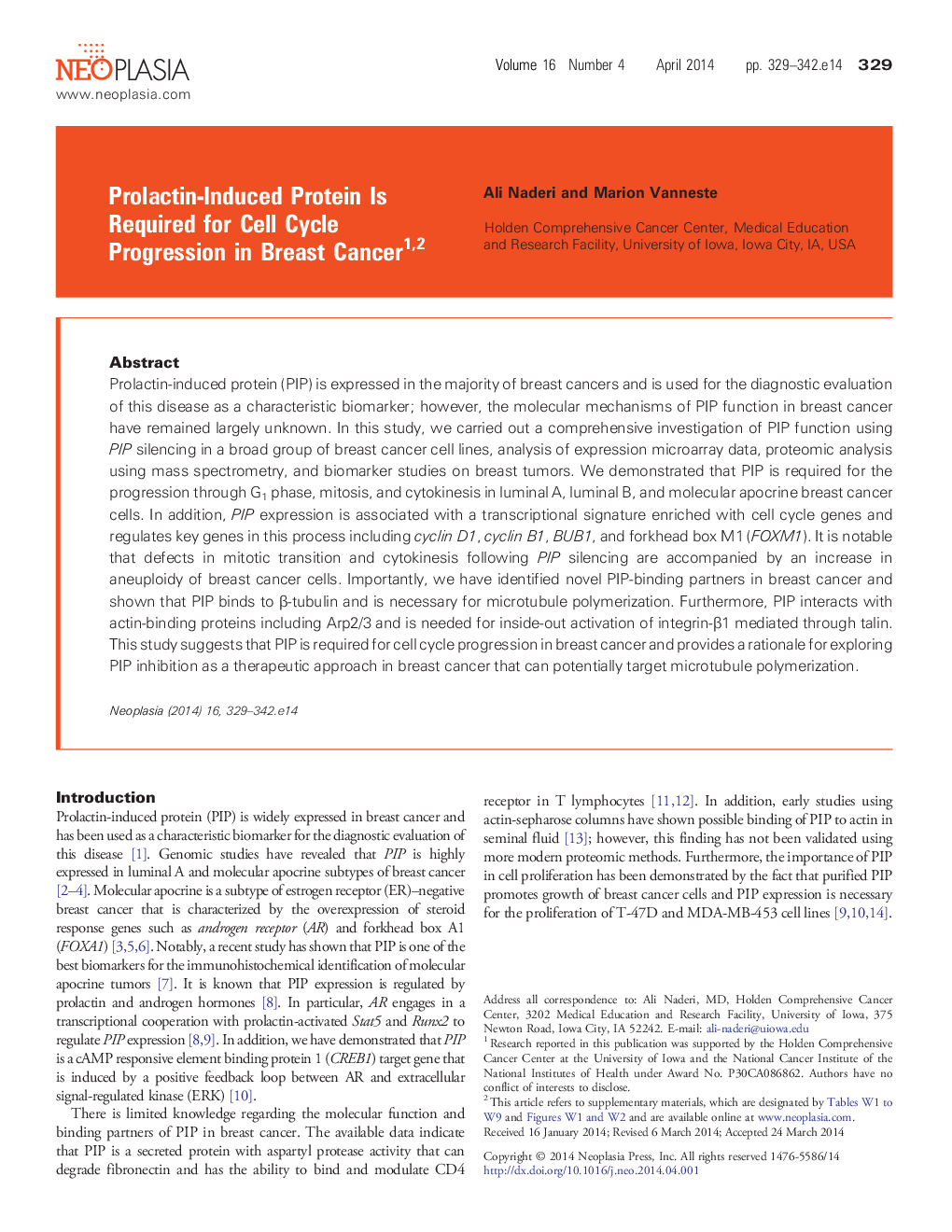| کد مقاله | کد نشریه | سال انتشار | مقاله انگلیسی | نسخه تمام متن |
|---|---|---|---|---|
| 2151165 | 1089967 | 2014 | 28 صفحه PDF | دانلود رایگان |
عنوان انگلیسی مقاله ISI
Prolactin-Induced Protein Is Required for Cell Cycle Progression in Breast Cancer
ترجمه فارسی عنوان
پروتئین منجر به پرولاکتین برای پیشرفت چرخه سلولی در سرطان پستان ضروری است
دانلود مقاله + سفارش ترجمه
دانلود مقاله ISI انگلیسی
رایگان برای ایرانیان
موضوعات مرتبط
علوم زیستی و بیوفناوری
بیوشیمی، ژنتیک و زیست شناسی مولکولی
تحقیقات سرطان
چکیده انگلیسی
Prolactin-induced protein (PIP) is expressed in the majority of breast cancers and is used for the diagnostic evaluation of this disease as a characteristic biomarker; however, the molecular mechanisms of PIP function in breast cancer have remained largely unknown. In this study, we carried out a comprehensive investigation of PIP function using PIP silencing in a broad group of breast cancer cell lines, analysis of expression microarray data, proteomic analysis using mass spectrometry, and biomarker studies on breast tumors. We demonstrated that PIP is required for the progression through G1 phase, mitosis, and cytokinesis in luminal A, luminal B, and molecular apocrine breast cancer cells. In addition, PIP expression is associated with a transcriptional signature enriched with cell cycle genes and regulates key genes in this process including cyclin D1, cyclin B1, BUB1, and forkhead box M1 (FOXM1). It is notable that defects in mitotic transition and cytokinesis following PIP silencing are accompanied by an increase in aneuploidy of breast cancer cells. Importantly, we have identified novel PIP-binding partners in breast cancer and shown that PIP binds to β-tubulin and is necessary for microtubule polymerization. Furthermore, PIP interacts with actin-binding proteins including Arp2/3 and is needed for inside-out activation of integrin-β1 mediated through talin. This study suggests that PIP is required for cell cycle progression in breast cancer and provides a rationale for exploring PIP inhibition as a therapeutic approach in breast cancer that can potentially target microtubule polymerization.
ناشر
Database: Elsevier - ScienceDirect (ساینس دایرکت)
Journal: Neoplasia - Volume 16, Issue 4, April 2014, Pages 329-342.e14
Journal: Neoplasia - Volume 16, Issue 4, April 2014, Pages 329-342.e14
نویسندگان
Ali Naderi, Marion Vanneste,
